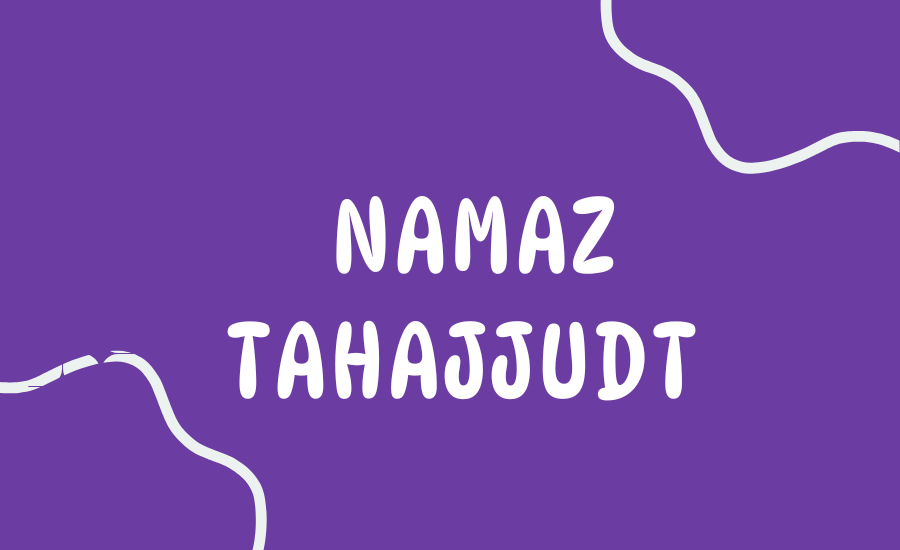In the stillness of the night, when the world is silent and hearts are at rest, there exists a sacred moment where a believer’s soul awakens i.e. this is the time of Tahajjud Salah, also known as Qiyam-ul-Lail, the night prayer that brings one closer to Allah than any other voluntary act of worship.
Tahajjud is not an obligatory prayer; however, it is an intimate dialogue between the believer and the creator i.e. a moment when tears fall, hearts soften, and the mercy of Allah descends upon those who rise for His remembrance. It was the habit of the Prophet Muhammad (peace be upon him) and the hallmark of the righteous who sought guidance, forgiveness, and tranquility in the darkest hours before dawn.
In an age filled with distractions, anxiety, and endless pursuits of worldly success, Tahajjud offers a divine remedy; peace of mind, clarity of purpose, and strength of faith. This blessed prayer transforms lives, unlocks answered duas, and revives the light of Iman within the believer’s heart. As Allah says in the Quran:
وَمِنَ اللَّيْلِ فَتَهَجَّدْ بِهِ نَافِلَةً لَّكَ
“And in some parts of the night, pray Tahajjud beyond what is obligatory on you.” – (Surah Al-Isra, 17:79)
This blog explores the true meaning, benefits, method, and spiritual secrets of Tahajjud, supported by authentic Quranic ayats and hadiths, helping you build a deeper connection with Allah and embrace the power of the night prayer.
Meaning of Tahajjud and Qiyam-ul-Lail
The word Tahajjud comes from the Arabic root “hajada”, meaning to stay awake at night. It refers to the voluntary prayer offered after sleeping for a short time, during the last third of the night. Qiyam-ul-Lail literally means “Standing during the night” and refers to all kinds of night worship, including recitation of Quran, Dua, and Salah. While Qiyam-ul-Lail is a broader term, Tahajjud specifically refers to the voluntary Salah performed after waking from sleep.
Tahajjud in the Quran
Allah Almighty repeatedly encourages believers to rise in the night and remember Him, highlighting the special spiritual rank of those who do so.
1. Command to the Prophet (PBUH):
Arabic:
وَمِنَ اللَّيْلِ فَتَهَجَّدْ بِهِ نَافِلَةً لَّكَ عَسَىٰ أَن يَبْعَثَكَ رَبُّكَ مَقَامًا مَّحْمُودًا
Transliteration: Wa minal layli fatahajjad bihi nafilatan laka asa an yab’athaka rabbuka maqaman mahmooda
Translation: “And in some parts of the night, pray Tahajjud beyond what is obligatory on you; perhaps your Lord will raise you to a praised station.” – (Surah Al-Isra, 17:79)
This verse highlights the unique spiritual rank of the Prophet Muhammad (PBUH) and the special honor Allah prepared for him through night worship. It also serves as an invitation for the Ummah to follow this blessed Sunnah i.e. to rise in the quiet of the night, seeking closeness, forgiveness, and elevation in the sight of Allah.
2. The Virtue of the Righteous:
Arabic:
كَانُوا قَلِيلًا مِّنَ اللَّيْلِ مَا يَهْجَعُونَ
Transliteration: Kanu qaleelan minal layli ma yahjaoon
Translation: “They used to sleep but little of the night.” – (Surah Adh-Dhariyat, 51:17)
This ayah beautifully portrays the devotion and discipline of the righteous, who sacrifice their comfort for the sake of worship. Their limited sleep reflects their deep love and longing for Allah, showing that true believers find their rest not in sleep, but in standing before their Lord in humility and gratitude.
3. The Promise of Reward:
Arabic:
تَتَجَافَى جُنُوبُهُمْ عَنِ الْمَضَاجِعِ يَدْعُونَ رَبَّهُمْ خَوْفًا وَطَمَعًا وَمِمَّا رَزَقْنَاهُمْ يُنفِقُونَ
Transliteration: Tatajafa junubuhum anil madaaji’i yad’oona rabbahum khawfan wa tama’a, wa mimma razaqnahum yunfiqoon
Translation: “They arise from their beds; they supplicate their Lord in fear and hope, and they spend from what We have provided them.” – (Surah As-Sajdah, 32:16)
This verse captures the essence of sincere faith and devotion, describing believers who leave their beds out of love, fear, and hope in Allah’s mercy. Their nightly prayers and generosity earn them divine favor and eternal reward, proving that true success lies in sacrificing worldly comfort for spiritual elevation.
Hadiths about Tahajjud Salah
The Prophet Muhammad (peace be upon him) emphasized the importance and beauty of Tahajjud throughout his life.
1. The Best Prayer After Obligatory Salah
Arabic:
أَفْضَلُ الصَّلَاةِ بَعْدَ الْفَرِيضَةِ صَلَاةُ اللَّيْلِ
Transliteration: Afdalus-salati ba’dal faridati salatul-layl
Translation: “The best prayer after the obligatory prayers is the night prayer (Tahajjud).” – (Sahih Muslim, 1163)
This hadith emphasizes the lofty status of Tahajjud Salah among all voluntary acts of worship. It is a prayer of sincerity, solitude, and devotion, performed solely for the pleasure of Allah. Those who stand in the night are granted special nearness to their Lord and blessings that surpass worldly gains.
2. The Time When Allah Descends
Arabic:
يَنْزِلُ رَبُّنَا تَبَارَكَ وَتَعَالَى كُلَّ لَيْلَةٍ إِلَى السَّمَاءِ الدُّنْيَا حِينَ يَبْقَى ثُلُثُ اللَّيْلِ الآخِرُ
Transliteration: Yanzilu Rabbuna tabaraka wa ta’ala kulla laylatin ila as-sama ad-dunya hina yabqa thuluthul layl al-akhir
Translation: “Our Lord descends to the lowest heaven every night when the last third of the night remains, and says: ‘Who is calling upon Me, that I may answer him? Who is asking Me, that I may give him? Who is seeking forgiveness, that I may forgive him?'” – (Sahih Bukhari, 1145; Sahih Muslim, 758)
This hadith reveals the most intimate moment between the Creator and His servants, when Allah Himself invites believers to call upon Him. It is a time when duas are accepted, sins are forgiven, and hearts are healed, reminding us that the doors of mercy are wide open in the stillness of the night for those who rise and seek His grace.
Procedure of Tahajjud Namaz: Step by Step
Learning how to pray Tahajjud Salah allows a believer to unlock one of the greatest spiritual treasures in Islam. It is simple yet deeply profound, a private moment between you and Allah in the calm of the night. By understanding its timing, method, and intention, one can perform it with sincerity and presence of heart, turning every rakat into a step closer to divine closeness and inner peace.
1. Timing
The best time to pray Tahajjud is after Isha and before Fajr, ideally in the last third of the night. You can calculate this by dividing the night’s duration into three parts.
Example:
If Isha is at 8:00 PM and Fajr at 5:00 AM, the last third starts around 2:30 AM to 5:00 AM.
2. Number of Rakats
Here is a brief breakdown:
Minimum: 2 rakats
Common practice: 8 rakats
Maximum: Up to 12 or more (as the Prophet sometimes prayed longer).
It is Sunnah to end with Witr prayer.
3. Intention (Niyyah)
There is no specific verbal niyyah. Simply make the intention in your heart:
“I intend to pray two rakats of Tahajjud for the sake of Allah.”
4. Recitation
Recite any Surahs after Surah Al-Fatiha, preferably long ones. Many believers recite Surah Al-Mulk, Surah As-Sajdah, Surah Al-Insan, or Surah Al-Ikhlas repeatedly.
Benefits and Rewards of Tahajjud
Below are some significant benefits of the Qiyam-ul-Lail salah:
- Forgiveness of sins: Allah forgives those who seek forgiveness in Tahajjud.
- Spiritual strength: It purifies the heart and strengthens faith.
- Answered prayers: Duas made at Tahajjud are more likely to be accepted.
- Closeness to Allah: It deepens your relationship with your Creator.
- Peace and tranquility: It brings inner calm and helps overcome stress.
Dua to Read during Tahajjud
Arabic:
اللَّهُمَّ لَكَ الْحَمْدُ أَنْتَ قَيِّمُ السَّمَاوَاتِ وَالْأَرْضِ وَمَنْ فِيهِنَّ
Transliteration: Allahumma lakal hamdu anta qayyimus-samawati wal-ard wa man feehinna
Translation: “O Allah, to You belongs all praise. You are the Sustainer of the heavens and the earth and all that is within them.” – (Sahih Muslim, 769)
You may also make personal duas from the heart for forgiveness, guidance, rizq, and relief from worries.
Tips to Wake Up for Tahajjud
Below are some useful tips to wake up daily for tahajjud:
- Sleep early after Isha.
- Set multiple alarms.
- Pray Witr at the end of Tahajjud if you plan to wake up late.
- Make sincere intention before sleeping.
- Reduce heavy meals before sleeping.
- Ask Allah for help to wake for Tahajjud.
Tahajjud of the Prophet Muhammad (PBUH)
The Prophet (peace be upon him) never abandoned Tahajjud. His nights were filled with long recitations, tears, and dua. Aisha (RA) said:
“The Prophet used to stand (in prayer) at night for so long that his feet would swell.” – (Sahih Bukhari, 1130)
When asked why he exerted himself despite being sinless, he replied:
“Should I not be a grateful servant?” – (Sahih Bukhari, 4836)
This powerful example shows the deep humility and gratitude of the Prophet Muhammad (PBUH), whose worship was driven purely by love for Allah, not obligation. His devotion teaches us that true thankfulness is shown through consistent worship, even when one has no sins to atone for, a reminder that Tahajjud is the prayer of the grateful hearts.
Spiritual Significance of Qiyam-ul-Lail
The night prayer purifies the heart, detaches one from worldly distractions, and revives the soul. It is a sign of true sincerity, as it is done when no one else is watching.
Arabic:
إِنَّ نَاشِئَةَ اللَّيْلِ هِيَ أَشَدُّ وَطْئًا وَأَقْوَمُ قِيلًا
Transliteration: Inna nashi’atal layli hiya ashaddu wat’an wa aqwamu qeela
Translation: “Indeed, the rising by night is most effective for the soul and most suitable for words (of prayer).” – (Surah Al-Muzzammil, 73:6)
This verse highlights the unique power and purity of worship at night, when the mind is calm and the heart fully attentive. In these quiet hours, the believer’s connection with Allah becomes stronger and more sincere, allowing the words of prayer to penetrate the soul and bring true spiritual transformation.
Common Mistakes to Avoid
As a believing Muslim, you should avoid these common mistakes:
- Treating Tahajjud as an obligation instead of a Sunnah.
- Delaying till Fajr time and missing it.
- Rushing through recitation without reflection.
- Being inconsistent or showing off.
- Skipping obligatory prayers while trying to perform Tahajjud.
Key Takeaways
The key takeaways are:
- Tahajjud is the gateway to divine mercy and blessings.
- It was a regular practice of the Prophet (PBUH).
- It strengthens faith, patience, and gratitude.
- Allah descends in the last third of the night to respond to prayers.
- It’s the best prayer after the obligatory ones.
Rise When the World Sleeps: The Power of Tahajjud
Tahajjud Salah is a secret between you and Allah, a conversation in the silence of the night where tears cleanse the heart, and whispers turn into answered prayers. It is the path walked by the prophets, the righteous, and those who seek closeness to their Lord. If you truly desire peace, forgiveness, and success in this world and the Hereafter, make Tahajjud your habit.
Frequently Asked Questions (FAQs)
Can I pray Tahajjud without sleeping first?
It is recommended to sleep first, but if you remain awake after Isha, your night prayer will still count as Qiyam-ul-Lail, not Tahajjud specifically.
How many rakats did the Prophet (PBUH) pray?
The Prophet usually prayed 8 rakats of Tahajjud and ended with 3 rakats of Witr.
What is the best time for Tahajjud?
The last third of the night, when Allah descends to the lowest heaven and responds to duas.
Can women pray Tahajjud?
Yes, Tahajjud is equally recommended for men and women.
Can I make dua in my own language?
Yes, you can make dua in your native language after Salah or during Sujood.







3 Responses
this website provides quality articles
This web page provides quality depending articles, reviews and other material.
You ought to take part in a contest for one of the finest blogs online.
I most certainly will recommend this web site!